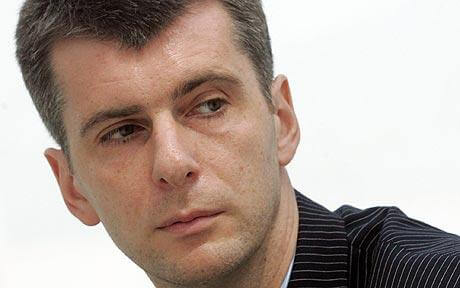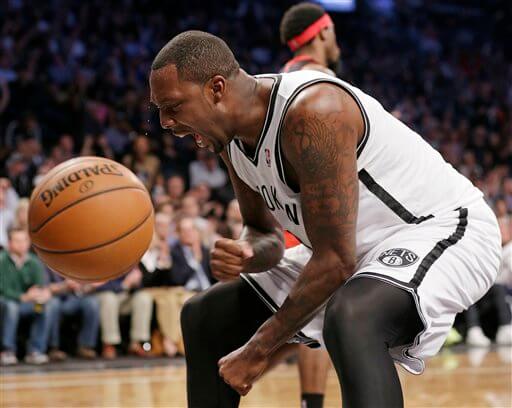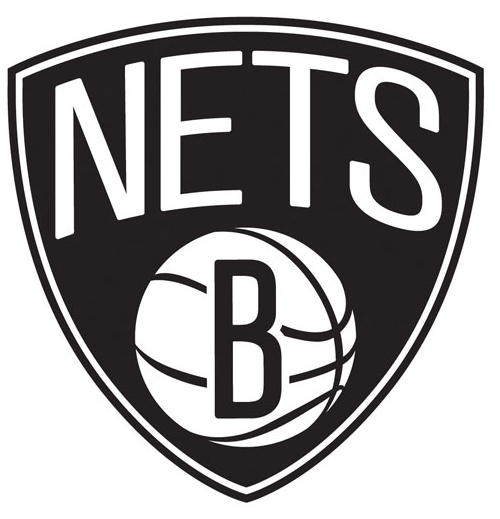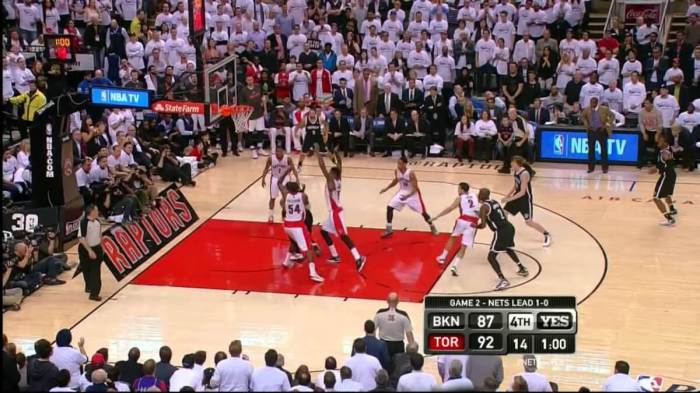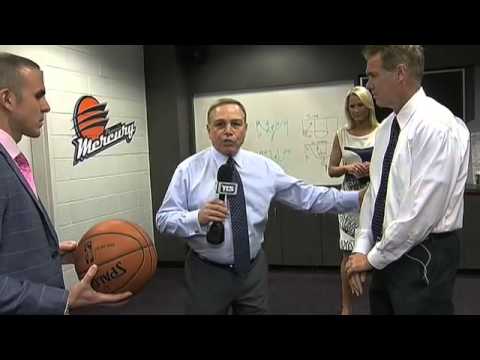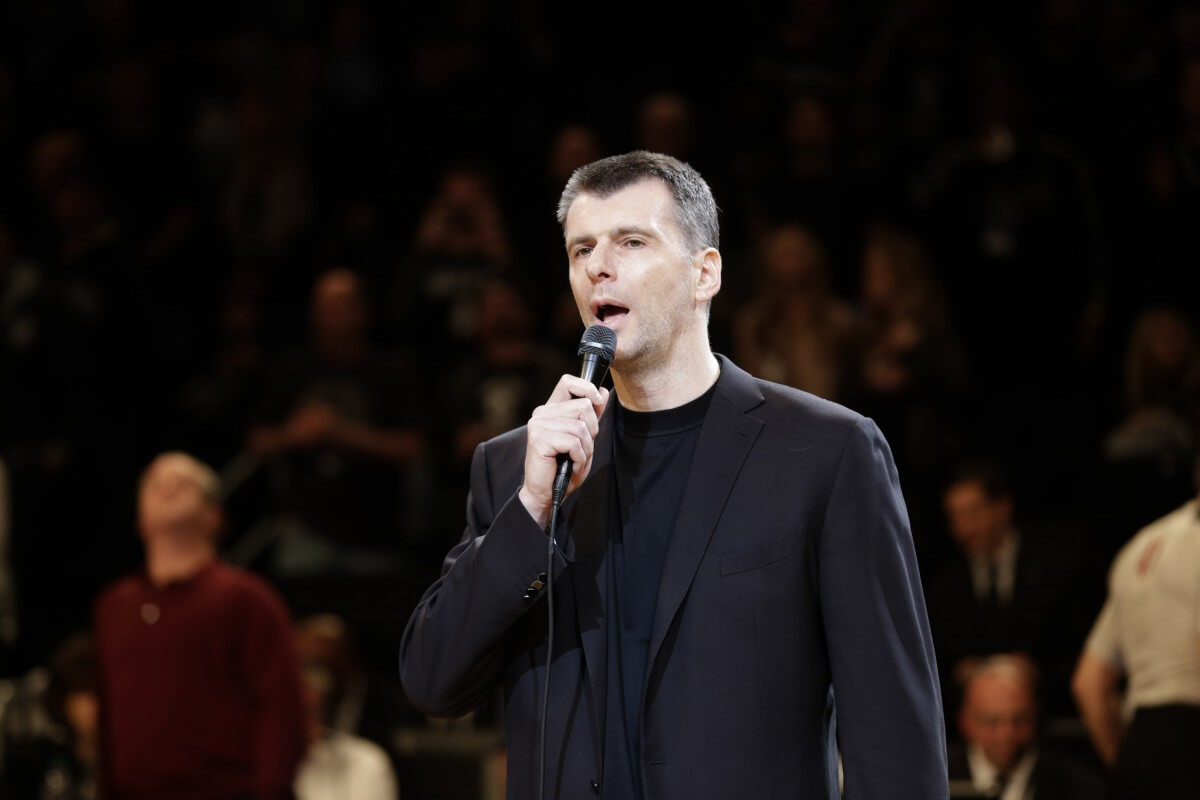
If you hadn’t noticed the dramatic shift in approach from the last few offseasons to this one, Mikhail Prokhorov put a bow on it during his video message to Nets fans last week.
For those who missed it, the Nets’ Russian billionaire owner, the same guy who said that the team would win a title in five years and who’s philosophy was to spend spend spend spend and get as many stars as possible regardless of cost, said this:
“You’ll see a team that is younger and more athletic this season. Our approach has been more strategic, while making all necessary moves to be set up well for the future.”
Yeah, that doesn’t quite sound like the guy who paid the highest luxury tax in the league over the last few seasons, ordered his GM to make insane and future-ruining trades, and has operated on the fly when it comes to building an actual team. Sounds like Prokhorov has learned some things. I really wish that this had been the approach from the beginning, but this new franchise was built on the idea of making a splash in year one, which was something I never really understood. And sure, while these last few years have been fun in their own right, I don’t know a Nets fan who thought what they were doing was, well, responsible.
So what have we all learned from the last three years of Brooklyn basketball? Quite a lot. I’ll give you five of them.
We learned that chemistry and continuity is sort of important.
Yep. I don’t think it’s a coincidence that the Nets had a worse record every year they were in Brooklyn, and I believe a large part of that reason was the lack of continuity. In year one, the Nets had a different coach and completely different rotation than in year two, and again in year three. Some of it wasn’t entirely their fault (looking at you J-Kidd), but it was the case.
Over the last three seasons, the Nets paid 38 unique players to play for them. That averages out to an entirely new roster of 12 new guys without repeating anyone for three straight years. There’s no way players can get comfortable and develop chemistry with teammates when trades and free agent signings are constant along with a never-ending coaching carousel. The fact that Lionel Hollins is the first coach in Brooklyn Nets history to start two consecutive seasons says all you need to know.
I hope the Nets can find some continuity with the roster from here out. The Brook Lopez and Thad Young deals — as well as keeping Joe Johnson and not trading Deron Williams for more new bodies — tell me they will do their best to fix this. We’ll see.
We learned that paying luxury tax creates problems.
Nobody in the NBA was more capped out than Brooklyn over the last few years, and the problem with that was that they were stuck with this mediocre roster that was costing them a fortune. They weren’t able to sign mid-tier guys that could have helped them, because they were paying a guy averaging 15 points a game more than the league MVP was making. I love me some Joe Johnson, but if he’s your highest paid player in 2015, you aren’t going too far.
Of course, the Nets weren’t the ones to offer Joe that outlandish contract, but they still get burned by taking it on. By maxing out three guys — all of whom wouldn’t have been the best guys on championship-caliber teams — you are strapped. Opportunities to make your team better can’t happen, like when the Nets were trying to acquire Kyle Lowry and Josh Smith a few years back. Paying the tax also make free agency close to impossible, which is a problem when guys need replacing after last year’s one-year deal guys leave. It’s not feasible to pay a vet minimum player millions more due to luxury tax, even for a rich man like Mikhail Prokhorov.
We learned that are no guarantees in superstar players.
When the Nets acquired Deron Williams, it was certain that we were getting a franchise-player caliber point guard, and that’s why nobody at the time had any qualms about giving him tons and tons of money.
It didn’t work out, and now D-Will is gone. Just because a guy is advertised as a superstar, doesn’t mean he will be. Whatever happened to Deron, we’ll never know. But the player who was supposed to be the face of the team, who was supposed to put us on the map, never showed up. When that happens, what do you do? I don’t know, but what the Nets did was double down on the promise of the talent of Williams. They surrounded him with more talent, they hyped him up as an MVP candidate, and he didn’t deliver. In year three, the Nets all but gave up on him, which is arguably just as bad as surrounding a player who was not going to deliver with more stars.
That trade was supposed to be the moment where it all began for the Nets, but instead, it was a massive disaster.
But we also learned that there’s no guarantees in draft picks.
On the flip side, you could argue that instead of trading for Deron Williams, the Nets should’ve kept their draft picks and built through the lottery like others have done. Let’s just say that the Nets wind up with both of the picks they gave to Utah for D-Will. On this imaginary roster would be Derrick Favors and Enes Kanter.
And let’s pretend that the Nets take Damian Lillard instead of trading for Gerald Wallace. I know this doesn’t really make sense because with a different roster, the Nets likely finish higher or lower in the standings and don’t get the same picks. But whatever. It’s my imaginary scenario, and you’re reading.
If the Nets trot out a lineup of Lillard-a SG-a SF-Favors-Lopez with Kanter off the bench, for example, is that a championship team? Lopez still probably hurts his foot, Favors still slowly develops into the 16-8 guy he is, Lillard is Lillard, and Kanter is a scoring threat who can’t play defense. Is that team a contender? On paper, not likely. So just because acquiring star talent didn’t work, it doesn’t mean that building through the draft would too. It’s more than just strategy sometimes. A lot of it is pure luck. So think about that as you cry yourself to sleep over the next five years without a first round pick.
And please, no more pick swaps.
The Nets became fans of pick swaps in this Brooklyn era, and I think I’m good with never hearing those words again. While the pick swap with Atlanta didn’t ruin the Nets like I thought it would, it still forced the team to completely reevaluate their draft decisions. Would we have traded Mason Plumee — a super fun center who I’ll always irrationally love after his super fun rookie year — if it weren’t for that damn pick swap? Unlikely. Would we have drafted injury prone risks or guys with character issues if our first round pick stayed as is? Probably not. If this works out, I’ll stand here corrected. But if it doesn’t, I will curse the pick swap.
Of course, the Nets have a few more of these coming up with Boston. Boston made the playoffs ahead of the Nets last season and look to be on the rise a tiny little bit. If these come back to bite the Nets yet again, I am going to be very unhappy. Please Billy King, or whoever replaces you as GM in a few years, just say “no” to the pick swap.

